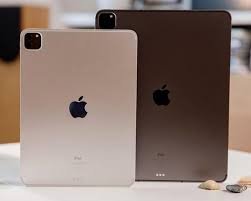If you want to own content, physical purchases are still your best bet
When you purchase a digital copy of a film or an e-book, do you own the title forever? It comes with plenty of caveats
When you purchase a digital copy of a film or an e-book, do you own the title forever? It comes with plenty of caveats. A few days ago Sony announced it would remove all Discovery content, including shows like MythBusters and Deadliest Catch, from user libraries, irrespective of whether they had been “purchased” on the PlayStation Store.
In a brief statement, the company said “due to our content licensing arrangements with content providers, you will no longer be able to watch any of your previously purchased Discovery content and the content will be removed from your video library”. That’s it. Some people who have “purchased” these titles are wondering if a full refund is on the way.
You may not have watched all or any of the Discovery content that is affecting some customers but questions have been raised about what it means to “own” digital products and how customers are at the mercy of licensing arrangements between media companies and online stores.
Last year, Sony removed access to hundreds of movies and TV shows — produced by StudioCanal — on its PlayStation Store, affecting users in Germany and Austria, even if these titles had been purchased. The reality is when you “purchase” a title digitally, your ownership has a lot to do with the long-term existence of a retailer and also having the correct licensing deals in place.
Consider the case of e-books. Automatic e-book updates are here to stay. The changes take place stealthily and with no clear evidence of a disturbance. In some markets (like the UK), owners of R.L. Stine’s Goosebumps books lost mentions of schoolgirls’ “crushes” on a headmaster and also a description of a character with “at least six chins”. Also “taken care of” are racial and ethnic slurs in Agatha Christie’s mysteries. Buying an e-book doesn’t always mean it’s yours.
Nobody has problem when publishers fix grammatical errors but when they play around with details that can alter the story, things get out of control.
Such alterations can also happen to music. In 2022, Beyoncé and Lizzo edited songs after release to remove a word some listeners found offensive. A quick look at Kindle’s terms of use, shows that content on the platform is “licensed, not sold, to you by the content provider”. Movies and television can vanish after a change in copyright ownership.
The market for vinyl, cassettes and Blu-ray discs still exists but it’s costly and not all titles are available. Further, physical media offers better video quality. In 2023, as long as you have a disc and something to play it on, nobody can stop you.
Source: The Telegraph online




